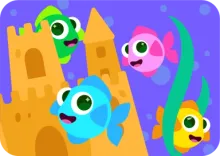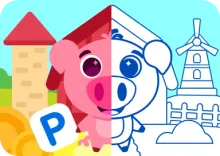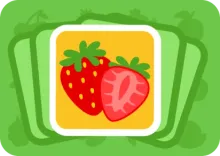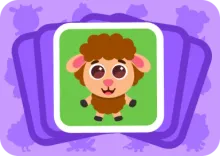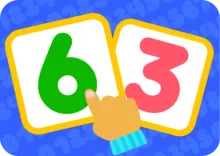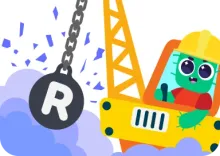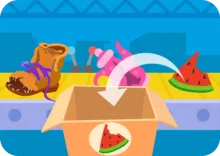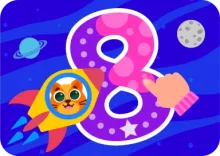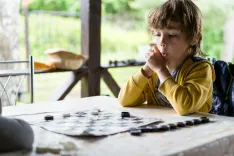Best Engaging Preschool Activities for Fun Learning
Preschool activities can be simple, playful, and meaningful. This guide shares easy ideas that support early learning through movement, sensory play, and creativity, using everyday materials at home or in the classroom.

Preschool activities that support learning through play
Choosing the right preschool activities is imperative not only for an efficient learning process but also for getting your child interested in discovering new things. Engaging in preschool activities helps create positive educational experiences, develop curiosity, and boost confidence and self-esteem. They are a safe space where children explore the world around them and solve challenges in a positive environment.
Introduction to Preschool Learning Activities
Early childhood education pertains to children from 1 to 8 years old. During this time, kids experience rapid growth and development across various critical aspects, including cognitive, social, emotional, and physical. The children require a special approach to education during this time.
Traditional methods, such as instruction-based learning, may not work for kids at this age. They remain engaged and motivated when learning through play. It also has a holistic approach, which allows preschoolers to develop various skills through one activity. Games also enable an individualized approach and help children learn at their own pace. On top of all that, fun preschool activities are enjoyable, which can lead to a more positive attitude towards education.

Help your child
grow with Keiki
We’ll help you turn everyday screen time into real learning progress.
Try KeikiThe Importance of Play in Early Childhood Education
Play is an integral part of early childhood education. It allows children to learn new knowledge, develop essential skills, and explore the environment. Play contributes to emotional, cognitive, physical, and social well-being. Play-based activities have an important role in the learning process and help differentiate tasks for your child.
Besides, games often involve overcoming challenges, solving puzzles, and interacting with others. These are their key advantages, since they allow building new connections in the brain in such a creative and unusual way. Play-based educational activities for kids are generally built on stories and include sequences of events or interactions. This prolongs the child’s attention span and makes them concentrate on an activity for longer.
Games also involve a critical social component in addition to developing basic academic skills. They practice sharing, taking turns, cooperating, negotiating, and resolving conflicts. These interactions are essential for building positive relationships, developing empathy, and understanding others’ viewpoints. Some plays also require physical activity, which helps develop coordination, strength, and balance.
How to Incorporate Learning into Fun Activities
When you already play fun games with your child, it may seem challenging to add an educational aspect to them. It’s important to keep in mind that learning activities for preschoolers need to be both interactive and educational. You can start by turning basic chores and processes into learning games. For instance, you can ask your child to sort their laundry by color, count the number of fruits you buy in a supermarket, or read basic words from signs. These are the simple, hands-on ways that require nothing but your creativity.
If you want to be more structured, here are some other ways to add learning activities to your everyday routine. For instance, you can use letter puzzles, alphabet blocks, or magnetic letters to help children memorize the alphabet. Number puzzles or counting songs and rhymes will be great for remembering numbers and understanding how to count. Below, we offer suggestions for different pre-k learning activities and tips for parents.
Creative Art Activities
Arts and crafts can be an excellent way to spark interest in education and engage your child for a long time. You can also add them to your educational routine as a nontrivial way to develop various skills. For instance, cutting with scissors, drawing with crayons, finger painting, clay modeling, and molding help work on fine motor skills and hand-eye coordination. They also teach kids to follow instructions and improve their precision and patience.
Such activities also enhance problem-solving skills and critical thinking. Children learn to plan, think creatively, and experiment with different materials and techniques. They have a safe environment to express their feelings, which helps them manage their emotions and has a therapeutic effect. They don’t necessarily have to be educational and include specific instructions, and it’s even better when your kid has some freedom.
When you discuss the process and artwork with your child, it facilitates language development and improves communication skills. It is an excellent idea for spending quality time with your preschooler. Completing art projects gives children a sense of accomplishment and improves their confidence. Be supportive throughout the process, even when challenges arise.
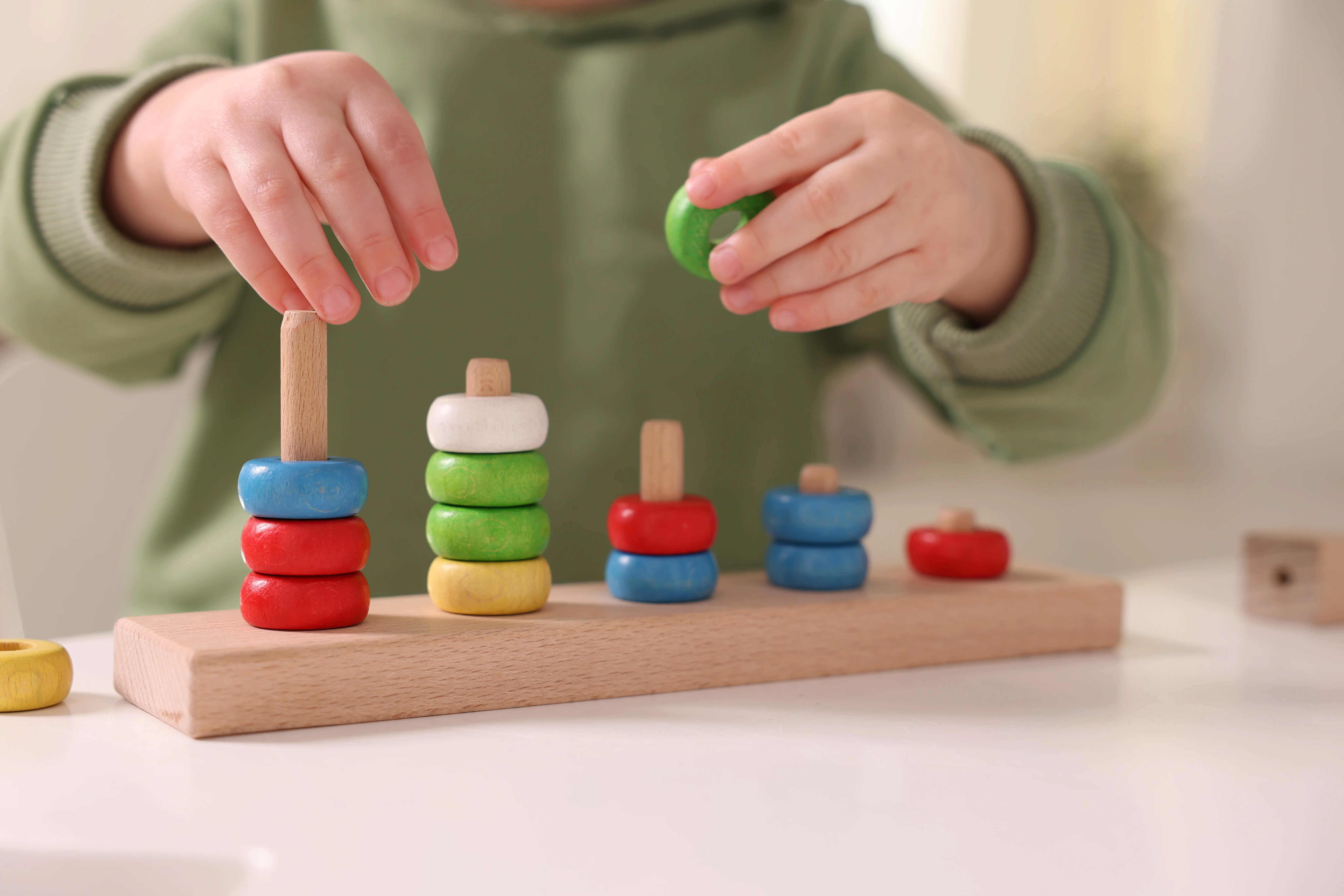
Sensory and Science Activities
Sensory plays improve learning experiences through exploration, creativity, problem-solving, and curiosity. Experiences with different senses help build new nerve connections in the brain. Sensory plays also help develop fine motor skills and allow the child to focus and not get distracted for long. Here are the most popular examples of inexpensive, fun activities for preschoolers.
- Playdough activities are great for developing motor skills, whether you buy it at the store or make it yourself. You can use tools like cookie cutters, rolling pins, and molds.
- Sensory bins are bins filled with various materials, such as rice, beans, and sand. This provides an excellent tactile experience and enhances fine motor skills. Give your child the freedom to mix the materials or sort them apart.
- Sand play involves creating a sandbox area with shovels, buckets, and molds. It helps develop motor skills, enhances sensory exploration, and promotes imaginative play. You can look for suitable activities based on your child’s age.
- Nature walks to the park, forest, beach, or river banks can be an excellent way to learn more about the environment. They help kids explore different textures, smells, and sights in nature.
Science preschoolers activities are great for exploring the world, experimenting, and developing analytical thinking. They enhance the kid’s natural curiosity and creativity. You can try to complete simple chemical reactions or explore the magnets and how they work with various materials. Besides, planting seeds, exploring floating and sinking, or shadow play can be great ways to give your child a rest from traditional learning and add something new to your everyday routine.
Your kid can also help you do some age-appropriate chores in the garden or around the house. This can be an engaging way to spend time together and teach your child new things. When implementing science educational activities for kids into your routine, you need to be extra attentive and careful. Some of these games involve working with hot materials, sharp tools, or other potentially dangerous things.
Social-Emotional Learning Activities
The social aspect is crucial for education. Whether it’s a teacher, parent, or classmate, a child learns how to interact with others and develops essential skills, such as negotiation, solving conflicts, or taking turns. These skills are critical for self-awareness, self-regulation, responsible decision-making, and building long-lasting relationships. Here are some ideas you can implement in your daily learning.
Sometimes, you just need to ask how your child is feeling and talk about their emotions throughout the day. However, you may need more complex games and activities to help children understand different feelings and emotions. For instance, you can get cards with various facial expressions and ask your kid to act them out while others guess the emotions.
Create a kindness jar. Children can add a marble, a pebble, or a sticker every time they perform an act of kindness. Celebrate when the jar is full and talk about the positive things the kids have done and how they felt during it. Even small things can seem like huge accomplishments for them. You need to make sure every act of kindness is seen and valued.
You can also teach your child breathing exercises, such as “balloon breathing.” Create “calm down bottles” with glitter, water, and empty plastic bottles. They can shake the bottle and watch the glitter settle as a way to calm down. These exercises will help your kid settle down quickly and manage anxiety and stress. Expressing emotions in a healthy way is a critical skill, not only for academic aspects but for life in general.
Basically, these educational activities for preschoolers allow your kid to understand their own feelings and the emotions of other people, empathize with them, and share them. That’s why they are an integral part of the educational process.
Help your child thrive with playful learning
Turn screen time into real growth with Keiki’s educational games.
Try KeikiInteractive Preschool Game Ideas
These activities are essential to diversifying your learning process. Below, we include some of the best game ideas suitable for preschool children:
- alphabet hunt;
- shape sorter;
- counting fun;
- puppet theater;
- mystery bag;
- role-playing;
- story circle;
- freeze dance;
- parachute play.
Adding them to your learning routine will make it more diverse and suitable for preschool age. Feel free to adapt them to your child’s needs and interests to make the overall learning process more engaging and efficient. Make sure to pay sufficient attention to every educational aspect. It’s best to combine different types of games to achieve the best results.
Keiki World App: Best Activities for Preschoolers
Keiki is an all-encompassing learning tool. It includes a wide range of exercises, videos, and other valuable learning resources. They are all focused on developing essential skills and improving the overall educational process. You can use the Keiki App as an extra tool apart from your kindergarten or offline activities or as a central platform for playing fun games. It is most suitable for children aged 1–6. Here are the key benefits of this tool:
- It includes a wide range of exercises that focus on essential topics for young and preschool students (ABCs, colors, numbers).
- This app is completely ad-free, and there are no things that might work as distractions or interruptions to the educational process.
- This platform contains interactive and fun activities that spark interest and keep kids concentrated for a long time.
- It offers plenty of learning plans and exercises for different ages and skill levels, so you can adjust your learning process to fit your child’s needs and interests seamlessly.
Keiki World is a subscription-based service that provides various plans. You can purchase different packs, such as Reading & Spelling Starter, Speech Development, Letters and Handwriting Starter, Creativity Boost, Dino Learning, and Logic & Problem-Solving. Select them based on your child’s needs and interests to get the most out of them. Besides, more than a hundred printable worksheets come with every pack.
Related Games in Keiki App
Conclusion
Play is crucial for children’s education and development. It helps them acquire various skills and learn essential things for their future life experiences. With games, kids build their ability to attend and engage, develop flexibility in their thinking as they work to achieve their objectives and reflect on various things and processes.
That’s why you need to either adapt traditional learning methods for your preschooler or use activities developed considering the needs of this age. Providing plenty of age-appropriate preschool games to play with your child will help you create a friendly atmosphere.

